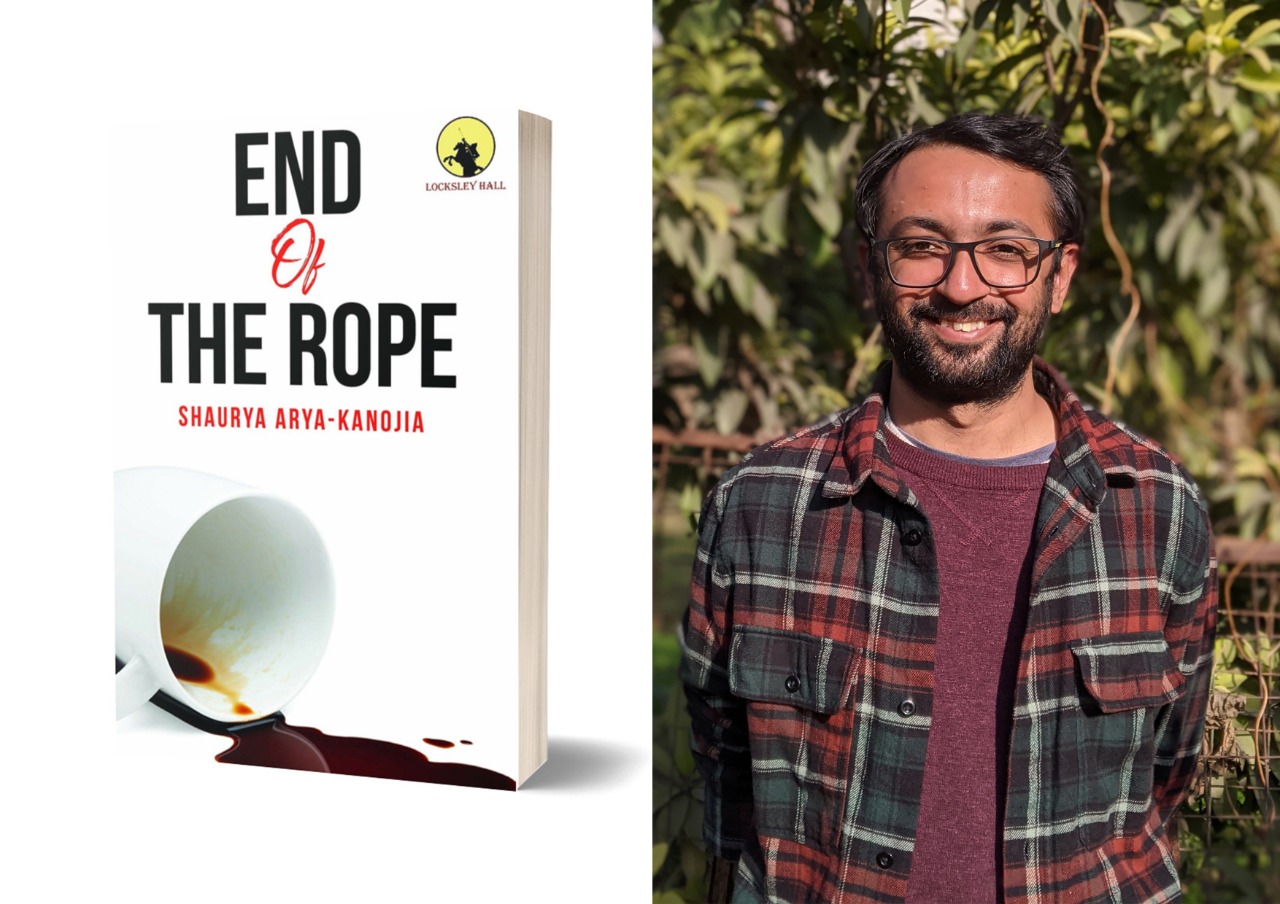We had an opportunity to have an interesting conversation with Shaurya Arya Kanojia, Author of Novel ‘End of Rope’
What is your schedule while writing a book?
When I’m writing, I try to put in at least 1000 words a day. Of course, there are good days (when ideas come pouring and you can’t keep up) and bad ones (when you aren’t motivated). But, I suppose, just like any other occupation or craft, it’s essential to keep at it. Though for a long time I used to be someone who felt his most creative in the mornings, after a cup of caffeinated fuel of course, I’ve recently started enjoying the quietness of night time. I do try to put in a couple to three hours a day to write to get the ball rolling.
How do you plan your stories?
For me, planning a story beforehand – with diligent note-making, drawing an outline and a structure – is incredibly difficult; almost intimidating. When I first heard JK Rowling took five years just to construct her HP characters, I was both awed and threatened. Whatever I write is essentially nothing more than a tiny seed, made up of a character and a setting, at the beginning. And I simply let the ball roll from there; adding more characters and scenes, and, ultimately building a plotline that I hope not only does justice to the story but also enamours me. Because until I’m happy with what I’ve written, the whole exercise becomes futile.
How long does it take to write a book?
To be fair, it really depends on the length of the book. And, secondly, your approach to it. If you’re methodical – like JK Rowling and even JRR Tolkein – it could take years. Or, if you’re planning an epic series like HP or LOTR, even decades. But, then again, it is because of the perseverance Rowling and Tolkein showed that these epic series are celebrated in the literary community. If you’re someone like me, who has a more carefree – maybe even “careless,” but words can be misleading – approach, you’d run out of patience before long.
What makes a good story?
Its characters, for sure. I believe it is a story that is character-driven than the other way round. Sure, the plotline of Breaking Bad was incredible, but it was the way Walter White’s character was written – his transformation from an indistinguishable high school teacher into a drug lord – that really carried the show to remarkable heights. The characters of a story define how impactful it is. The “freshness” of a character is represented by how “relatable” it is; its flaws, its vulnerabilities, its moments of weaknesses should resonate with the reader. Think of Harry Potter. Though a “fantasy” epic that – like so many others – culminates into a battle between good and evil, the character arc of not just the central characters but everyone who had a part to play in the story was so ingeniously designed that people of all ages and cultures could relate to it.
Did you always want to be a writer?
I don’t think so. Honestly, I’ve tried my hand at a great many things; and was all too quick to discard them. I pursued medicine in high school, went on to specialise in engineering in my undergrad, and swung to journalism in my postgrad. After touring through these disciplines, I discovered I liked to write. It wasn’t through a happenstance so much as something I realised I wanted to do. But, even then, I was far from discovering I wanted to be an author. I tried my hand at freelance writing jobs and, with each assignment, built my portfolio. With the confidence I gained brick by brick, I started writing for… well, myself. This included stories and poetry, but most of it would just sit in the darkness of an untitled folder in my laptop. It took some convincing by a few close friends that I should try my hand at publishing, and here we are…
How do you get your ideas?
From nowhere and everywhere. You may be sitting in a restaurant, see a mom scolding her toddler for spilling his glass of water all over the table, and the next thing you know it develops into an idea for a story. What I mean to say is, ideas can come from anywhere. Identifying whether a particular idea has the capability to hold enough water is something that just… happens. There’s no consciously designed standard protocol which helps me ascertain which idea is worth pursuing and which isn’t. Once an idea comes into my head, I let it sit for a while. If it looks like it could grow into a story – and if it hasn’t withered away to a point of unrecognizability after, say, a week – I decide it’s worth chasing.
Is writing energizing or exhausting?
I want to say it’s invigorating, but, honestly, it does get tiresome at times. Because it’s a creative process, when you don’t have the perfect “idea” to begin with you may feel demotivated; maybe even disheartened. Pessimism kicks in, you feel cynical about your abilities… something all of us go through at one point or another. But, on the flip side, once you are able to find that idea that clicks perfectly in your head, there’s nothing – at least for me – as revitalizing and thirst-quenching as that.
READ ‘END OF ROPE’ BY SHAURYA ARYA- KANOJIA : https://amzn.to/3kvTGiv
READ HIS BLOGS : www.kathakahaani.wordpress.com

